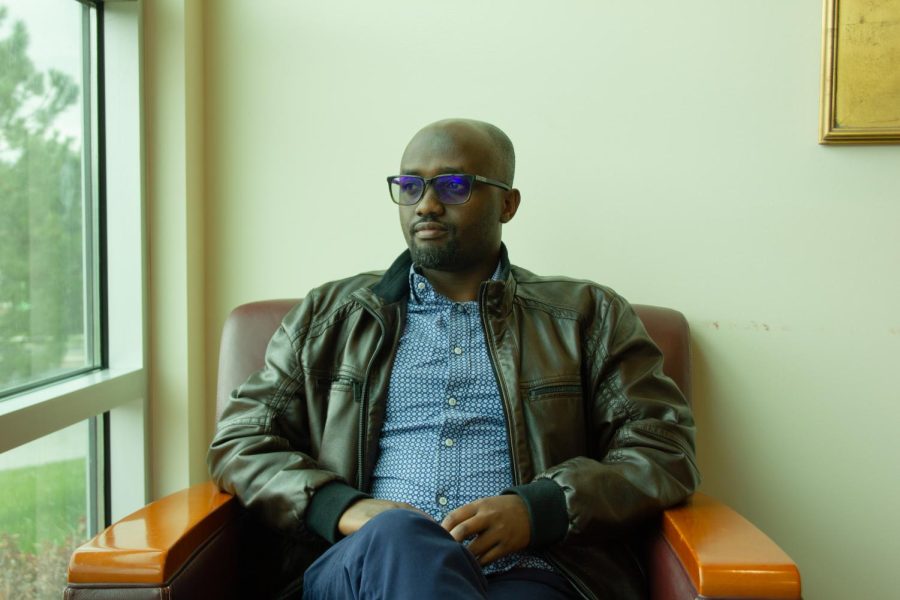Utah Rwandan Community Discuss 1994 Genocide against Tutsi 29 Years Later
Jean-Claude Kamali, President of Rwandan Community of Utah, poses for a photo at the South Jordan Public Library in South Jordan, Utah on Saturday, April 22, 2023. (Photo by Madeline Van Wagenen | The Daily Utah Chronicle)
May 1, 2023
The 1994 Rwandan Genocide against the Tutsi was one of the darkest times in human history.
In a press release from April 7, the anniversary of the genocide, António Guterres, the secretary general of the United Nations, commemorated the tragedy.
“On this International Day of Reflection on the 1994 Genocide Against the Tutsi in Rwanda, we mourn the more than one million children, women, and men who perished in one hundred days of horror 29 years ago,” he said.
In 2023, Rwanda is commemorating the genocide perpetrated against the Tutsi 29 years ago. The UN estimated that in 100 days, in addition to more than 1 million lives lost, between 100,000 and 250,000 women were raped during the genocide.
According to Human Rights Watch, “[t]he genocide was not a killing machine that rolled inexorably forward but rather a campaign to which participants were recruited over time by the use of threat and incentives.”
Jean Claude Kamali, president of the Rwandan American- Community in Utah, said, “Genocide against the Tutsi did not start in a vacuum; it was a decade of propaganda. Hutu militias were trained to kill cockroaches, [Tutsi] and were given guns, machetes, and clubs by the regime of former President Juvénal Habyarimana to carry out this mass atrocity killing.”
The children of refugees who grew up in exile were refused repatriation by the Habyarimana regime.
The Rwandan Patriotic Front is a Rwandan political party comprised of children of Tutsi refugees who created a rebel group to put pressure on the government and at the same time, fought to stop the mass killing that was taking place in the country.
Charles Kabano, a survivor of the genocide and a resident of Utah, spoke about the trauma he endured.
“We were five children with my parents,” he said. “During the genocide, my father was killed, and my two younger sisters. My aunt with four of her children, my paternal uncle, who was also my godfather, was killed with two children, and my maternal uncle, his wife and three children were slaughtered.”
Kabano said the memories of genocide “stay with us.”
“From the moment you grow up, you graduate from university, you don’t see your dad come to congratulate you, and you see other people’s parents, … you have kids, sometimes they ask about their grandfather, and it’s hard to explain to them, and it takes me back,” Kabano said.
Survivors struggle daily with broken bodies and have been traumatized by what happened, but they have chosen to recreate trust and restore hope and forgiveness as the path forward for their country and the next generation. In 2020, the Utah legislature unanimously passed a house resolution remembering the genocide against the Tutsi in Rwanda. However, community members say more must be done in terms of recognition and education.
According to Kamali, the Rwandan community hopes Gov. Spencer Cox will release an annual statement to commemorate the genocide against the Tutsi. Currently, the community of Rwanda is working with Salt Lake County to build a monument as a memorial site.
“[This] will help Utahns and survivors in general to remember the history of Rwanda and what happened during 1994,” Kamali said.









Darling hope • Nov 2, 2023 at 3:12 am
This is real an interesting story